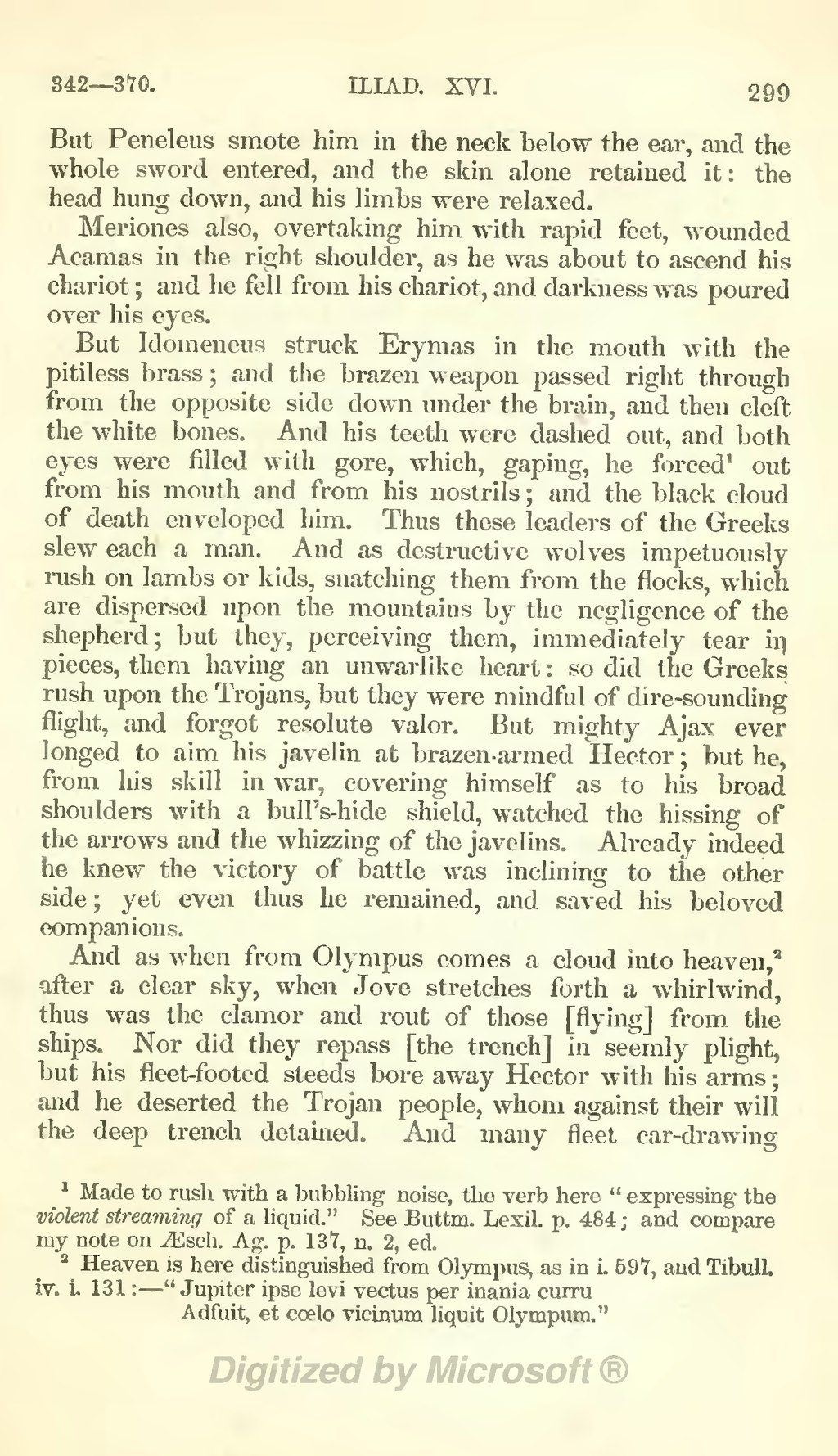But Peneleus smote him in the neck below the ear, and the whole sword entered, and the skin alone retained it: the head hung down, and his limbs were relaxed.
Meriones also, overtaking him with rapid feet, wounded Acamas in the right shoulder, as he was about to ascend his chariot; and he fell from his chariot, and darkness was poured over his eyes.
But Idomeneus struck Erymas in the mouth with the pitiless brass; and the brazen weapon passed right through from the opposite side down under the brain, and then cleft the white bones. And his teeth were dashed out, and both eyes were filled with gore, which, gaping, he forced[1] out from his mouth and from his nostrils; and the black cloud of death enveloped him. Thus these leaders of the Greeks slew each a man. And as destructive wolves impetuously rush on lambs or kids, snatching them from the flocks, which are dispersed upon the mountains by the negligence of the shepherd; but they, perceiving them, immediately tear in pieces, them having an unwarlike heart: so did the Greeks rush upon the Trojans, but they were mindful of dire-sounding flight, and forgot resolute valor. But mighty Ajax ever longed to aim his javelin at brazen-armed Hector; but he, from his skill in war, covering himself as to his broad shoulders with a bull's-hide shield, watched the hissing of the arrows and the whizzing of the javelins. Already indeed he knew the victory of battle was inclining to the other side; yet even thus he remained, and saved his beloved companions.
And as when from Olympus comes a cloud into heaven,[2] after a clear sky, when Jove stretches forth a whirlwind, thus was the clamor and rout of those [flying] from the ships. Nor did they repass [the trench] in seemly plight, but his fleet-footed steeds bore away Hector with his arms; and he deserted the Trojan people, whom against their will the deep trench detained. And many fleet car-drawing
- ↑ Made to rush with a bubbling noise, the verb here "expressing the violent streaming of a liquid." See Buttm. Lexil. p. 484; and compare my note on Æsch. Ag. p. 137, n. 2, ed.
- ↑ Heaven is here distinguished from Olympus, as in i. 597, aud Tibull. iv. i. 131:—
"Jupiter ipse levi vectus per inania curru
Adfuit, et cœlo vicinum liquit Olympum."
